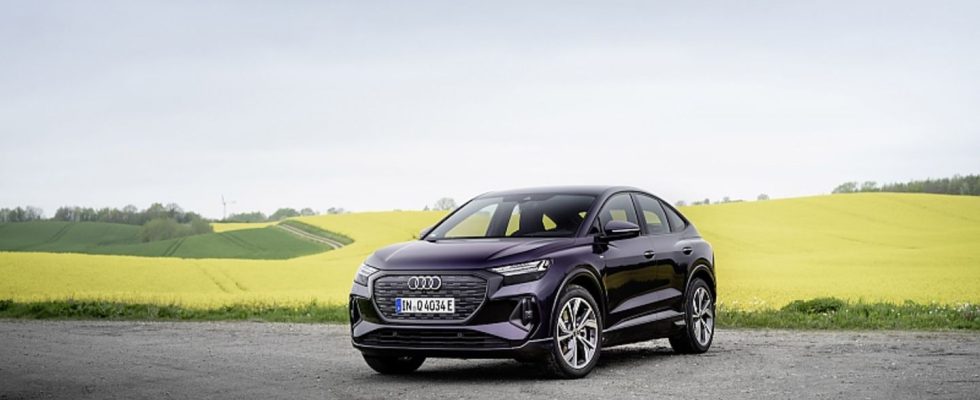Technology: Recycled glass in the car
recycled
Disc recycling Audi
© press-inform – the press office
After more than a year of testing, the time has now come. The pilot project to manufacture car windows from recycled glass goes into series production. The Audi Q4 Etron will be the first production vehicle whose window surfaces will be made from recycled glass starting in the fall.
Car windows have become true high-tech components in recent years. The electric Audi Q4 Etron goes one step further when it comes to the window surfaces with integrated antennas, double glass, coloring and heating. In the future, its panes will be made of recycled glass and are therefore more sustainable than ever. Anyone who regularly brings their used glass to the glass container on the corner knows glass recycling. In most cases, the glass bottles – regardless of whether they are wine, beer or water – are melted down again and used for new bottles. The old glass will soon be moving into the car as well, giving it a second life. Audi is turning its pilot project called “Glassloop” into a series module, so the glass surfaces in the Q4 Etron will be made from recycled glass from the fall. So far, car windows and panoramic roofs that can no longer be repaired have certainly been reused as part of what is known as downcycling; but at best in the area of a less demanding secondary use for surfaces or insulating materials.
Together with the companies Reiling Glas Recycling, Saint-Gobain Glass and Saint-Gobain Sekurit, Audi set up the Glassloop project, which examines how material cycles can be implemented in series production. After a year of intensive testing, the project is now ready for series production and the Audi Q4 Etron is the first vehicle that will soon be on the road with recycled discs. If the customer comes to the workshop with a broken car window, the workshop decides whether the glass can be repaired or handed over to the recycling company after replacing it with a new window. “Until now, beverage bottles were mostly made from the recyclate,” explains Daniel Rottwinkel, operations manager at Reiling Glas Recycling. “Automotive glass has to meet the highest requirements, for example in terms of crash safety. These requirements do not apply to bottles.” The company sorts out the non-glass substances, such as PVB plastic layers (poly-vinyl butyral) in the glass, window frames, metals and wires, such as heating wires and antenna cables. Sorting is carried out using magnets, non-ferrous metal separators, suction systems and electro-optical sorting units.
The glass granules obtained in this way are melted down and fed into a new manufacturing process for automotive flat glass. The proportion of waste glass in the panes is currently up to 30 percent. So many fragments should be provided for this that a recyclate share is secured over the entire series production period of the Audi Q4. The installation of the new discs is planned for models that will be manufactured from September. “If we process car windows that can no longer be repaired in such a way that they can be used again for automobile production, we use fewer primary raw materials overall and avoid downcycling the car windows that can no longer be repaired,” explains Philipp Eder, project manager for circular economy in the supply chain at Audi.
The Glassloop project is part of Audi’s Act 4 Impact program within the production and supply chain. The car manufacturer from Ingolstadt wants to be CO2-neutral at its production sites by 2025 thanks to its modified manufacturing and logistics processes. Audi wants to increase the use of secondary materials where it makes ecological and economic sense. “Our goal is to recover as many materials as possible at a high quality level in order to be able to use them again in our production,” emphasizes Audi CEO Markus Duesmann.

